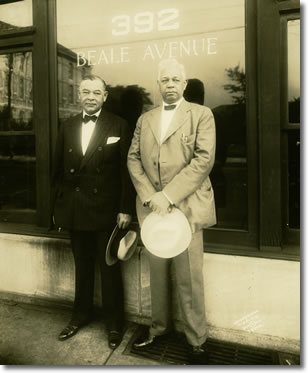National Leaders

Whether bold by nature or empowered by education and opportunity, many African Americans in Tennessee rose almost immediately to national prominence. The examples of Robert Reed Church, Sr. in Memphis and Richard Henry Boyd in Nashville demonstrate entrepreneurialism and civic responsibility passed down through generations. These successful businessmen helped found African American banks in early twentieth century Tennessee, several decades after the Freedmen’s Savings and Trust Bank, created by the United States Government in 1865, with branches in Columbia, Chattanooga, Nashville and Memphis, failed in the financial panic of 1873-74. In January 1904, with backing from Boyd and others, the One-Cent Savings Bank opened its doors in Nashville; followed in 1906 by Church’s Solvent Savings Bank and Trust in Memphis. The One Cent Savings Bank, which changed its name to Citizens Bank in 1927, is the oldest continuously operating black bank in the United States. Solvent Savings Bank, which merged with another African American-owned bank in 1927, failed during the Great Depression. The Tri State Bank, which opened on Beale Street in 1946, is still in operation.
The legacy of Fisk-educated W.E.B. DuBois, who sought betterment for African Americans by making it a national cause, was upheld by Charles Spurgeon Johnson, whose Race Relations Institute attracted intellectuals and activists to Nashville in the 1940s and 1950s.
Biographical Essay:
James Carroll Napier (1845-1940) by Linda T. Wynn